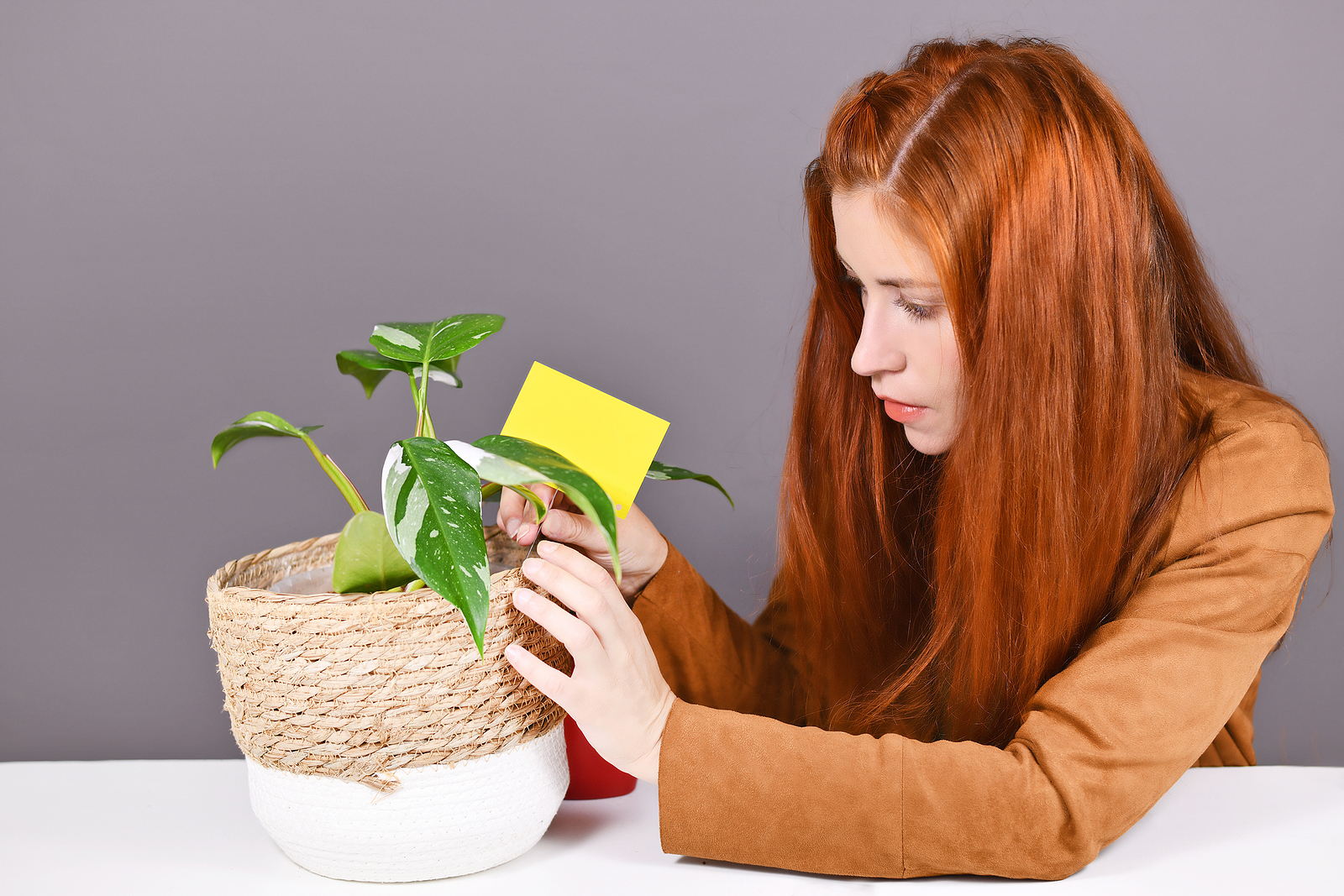According to the experts at Garden Media Group, the U.S. gained 18.3 million new gardeners during the pandemic.
Not all of these green-thumbers are playing in the dirt outside. In fact, houseplant popularity surged 18% while we were all snuggled down at home because of Covid, according to statistics published online at gardenpals.com.
One of the biggest challenges for the indoor gardener is the pest predicament. From “How did they get in my home?” to “How do I kill them,” garden groups on Facebook are full of tormented houseplant growers.
The most frustrating pest is the fungus gnat (Bradysia spp). A small winged pest, you’ll find them dead in droves near your potted plants, near the kitchen sink and flying into your face as you cross a room.
Lucky you, because we have a tried-and-true remedy to get rid of these nasty little bombardiers for good.
What you need to know about fungus gnats
“Fungus gnats are small flies that infest soil, potting mix, other container media, and other sources of organic decomposition,” according to scientists with the University of California Integrated Pest Management Program
They are especially fond of peat-based soil. The adult lays her eggs in the soil. When they hatch, the larvae gorge on any organic matter in the soil, “but also chew roots and can be a problem,” warns the experts at the U.S. Environmental Protection Agency (EPA).
Many gardeners rely on yellow sticky traps to trap as many adults as possible. These, however, do nothing to rid the house of fungus gnat larvae, which reside in the soil.
Forget those DIY recipes you’ll find online
There are lots of these recipes online. While people swear that theirs is the very best, most of them have been debunked via scientific research.
Universities have studied using a layer of sand on the top of the soil to discourage the gnats from laying eggs in the soil.
It didn’t work, although it’s one of the most popular suggestions from amateur gardeners. The research in fact found that when sand dries, it creates crevices, through which the female gnat can gain access to the soil.
Hydrogen peroxide, bottom watering the plant and a mixture of apple cider vinegar and several drops of liquid dish detergent in a bowl next to the plant are likewise pure myth.
So, how do you get rid of those creepy hordes of fungus gnats?
The one we’ve found works the best, without resorting to the use of toxic chemicals, is Mosquito Bits, a product usually used to kill mosquitos.
Mosquito Bits contain Bacillus thuringiensis israelensis (Bti), “… a biological or a naturally occurring bacterium found in soils,” that is non-toxic according to the EPA.
The various Bt strains contain spores that produce toxins that specifically target and only affect the larvae of specific pests. For instance, Btk (Bacillus thuringiensis kurstaki) targets caterpillars.
It’s important that you ensure you’re purchasing the proper Bt strain (in this case, israelensis).
Mosquito Bits are available online at Amazon.com, Lowes.com and Homedepot.com, among other retailers.
Since gardeners love to try their own methods, the two we’ve heard have met with the best results are to:
- Sprinkle the Mosquito Bits onto the top of the soil and water the plant.
- Follow the package instructions which suggests that you mix the bits with water, allow them to sit for a period of time and then water the plant with the solution.
You may need to repeat the application in a week or so to ensure that you get all the larvae.
Follow ALL precautions on the label and use only as instructed.






